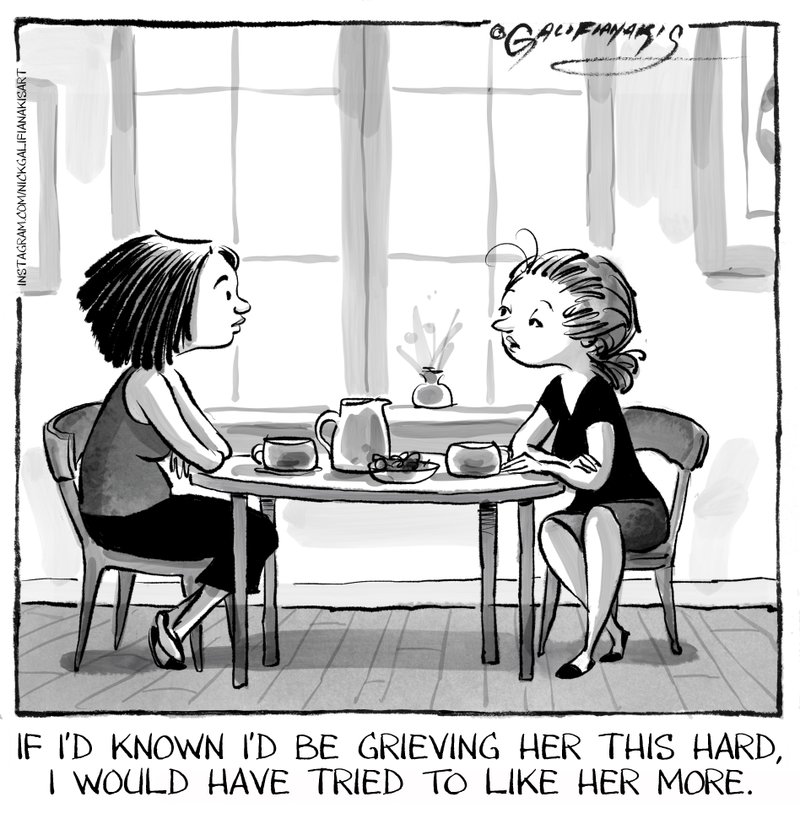DEAR CAROLYN: My mother died recently. Ours was a complex relationship; due to earlier life traumas and later mental illness, she came across as a cold-hearted perfectionist who was always right.
Asking for help or making a mistake was akin to failure. She was also rather closed-minded from a diversity perspective.
Her death has resulted in many mixed feelings on my part. As never before, not even when my father died while I was a child, this experience has allowed for conversations within my own family, including our many imperfections, faith, love and death.
The unexpected part is that I continue to have waves of tears at unpredictable times, even while exercising. (The shower seems to be a constant one, however.)
I suppose this represents some sort of mourning for what might have been, and at some point, it will become less unpredictable -- but really, is this normal? Sometimes it just hurts so much. It almost feels disingenuous to feel sad about what I missed.
-- Crocodile Tears?
DEAR READER: No, you are not doing grief wrong.
The heart of everything we cry about is "what might have been."
What you're feeling is OK, being caught off-guard by the size of those feelings is OK, the unpredictability of their surges is OK, the predictability of crying in the shower is OK.
And crying while exercising? Physical activity can loosen up our feelings, so that's more of an "especially while" than an "even while."
This is just my surface take, but the emotional environment you describe -- an abundance of human frailty plus a scarcity of patience for it -- can have a powerful suppressing effect. Its message being: Don't think too much, don't show too much, don't share too much.
Having that ethos drilled into you could explain why you're so skeptical now of your own grief. That if it's messy it must be wrong.
The suppression effect could also explain why, when the perfectionist pressure came off suddenly with your mother's death, you were able to open up with your family as never before.
It's also normal, and common, for surviving children to grieve the parent they had and the parent they wish they'd had.
So your big, erratic feelings sound like a necessary and healthy reckoning.
Grief support tends to be a more accessible kind of therapy -- ask a local hospice provider for suggestions -- so if you still feel this surge of feelings and questions, then please don't hesitate to get more in-depth help.
DEAR CAROLYN: I'm in my late 60s, fiancee early 70s, first marriage for both. My niece wants her girls, now 2 and 4, to be flower girls. I feel this is just embarrassing for a 68-year-old first-time bride. I'm not 25, and don't think the wedding should be like one for a young couple. How do I get her to back down?
-- Bride
DEAR READER: You say, "No, thank you," and then, if she's still pushing this on you, you say, "No, thank you."
The things people will apply pressure for will never cease to amaze me.
While I'm here, though: A 68-year-old first-time bride gets whatever wedding she and her intended want. Please make embarrassment the thing you refuse to include.
Chat online with Carolyn at 11 a.m. each Friday at washingtonpost.com. Write to Tell Me About It in care of The Washington Post, Style Plus, 1150 15th St. N.W., Washington, D.C. 20071; or email
tellme@washpost.com
Weekend on 10/10/2019
